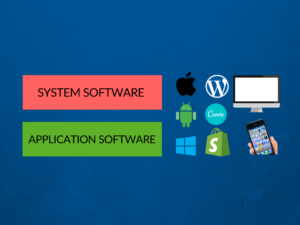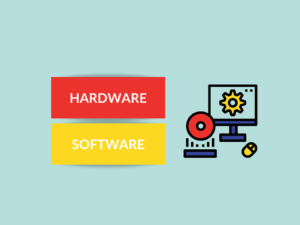Computer Science vs Information Technology: Understanding the Differences
Introduction
In today’s technological world, Computer Science and Information Technology are often used interchangeably, causing confusion among many individuals. While they share some common ground, they are distinct fields with unique focuses and objectives. In this article, we will delve into the contrasts between Computer Science and Information Technology, exploring their definitions, examples, and applications.
What is Computer Science?
Computer Science is the study of computers and computational systems, encompassing both theoretical and practical aspects. It involves designing and implementing algorithms, developing software and hardware solutions, and analyzing complex problems to provide efficient solutions. Computer Science is a broad field that covers various sub-disciplines, such as artificial intelligence, data science, software engineering, and computer graphics.
Examples of Computer Science
- Creating advanced machine learning algorithms to predict stock market trends.
- Developing programming languages like Python or Java.
- Designing computer networks to ensure secure and efficient data transfer.
Uses of Computer Science
Computer Science finds applications in several areas, including:
- Artificial intelligence: Developing intelligent systems capable of performing human-like tasks.
- Cybersecurity: Protecting computer systems and networks from unauthorized access.
- Software development: Creating innovative applications and programs for various industries.
What is Information Technology?
Information Technology focuses on utilizing technology to manage and process information effectively. It involves the study, development, and implementation of computer systems, networks, and databases. Information Technology professionals handle software, hardware, and network troubleshooting, as well as system administration and database management.
Examples of Information Technology
- Setting up and managing a company’s computer network infrastructure.
- Maintaining and troubleshooting hardware and software issues.
- Developing and implementing database management systems.
Uses of Information Technology
Information Technology plays a critical role in various domains, including:
- Business processes: Enhancing efficiency and productivity through streamlined information management.
- E-commerce: Facilitating online transactions and managing customer databases.
- IT support: Providing technical assistance and troubleshooting to end-users.
Differences between Computer Science and Information Technology
| Difference Area | Computer Science | Information Technology |
|---|---|---|
| Educational Focus | Emphasizes the principles and theories of computation, algorithms, and problem-solving techniques. | Focuses on practical implementation, management, and troubleshooting of computer systems and networks. |
| Objective | Develops new software and technologies, conducts research, and explores computing concepts. | Utilizes existing technologies to manage and process information efficiently. |
| Scope | Extensive and covers diverse areas like artificial intelligence, software engineering, and algorithm design. | Narrower and primarily deals with computer systems, networks, and information management. |
| Technical Skills | Requires proficiency in programming languages, data structures, algorithms, and software development. | Demands expertise in networking, hardware maintenance, database management, and system administration. |
| Job Roles | Software engineer, data scientist, AI specialist, research scientist. | Network administrator, systems analyst, database administrator, IT consultant. |
| Career Path | Primarily focused on research, innovation, and advanced development in the computing field. | Covers a wider range of industry roles, including technical support, infrastructure management, and system administration. |
| Academic Credentials | Typically involves pursuing a Bachelor’s, Master’s, or Ph.D. degree in Computer Science. | Commonly includes earning a degree in Information Technology, Computer Information Systems, or a related field. |
| Industry Certifications | Relevant certifications may include Certified Software Development Professional, Microsoft Certified Solutions Developer. | Relevant certifications may include CompTIA A+, Cisco Certified Network Associate (CCNA), Microsoft Certified IT Professional. |
| Research Focus | Primarily focused on exploring new technologies, algorithms, and scientific advancements. | More focused on practical application, system integration, and addressing specific business needs. |
| Problem-Solving Approach | Emphasizes theoretical understanding and algorithmic problem-solving strategies. | Practical approach with a focus on finding solutions to real-world technical challenges. |
Conclusion
Computer Science and Information Technology are two distinctive fields that play crucial roles in our increasingly digital world. Computer Science entails the study and development of computing systems, algorithms, and software, while Information Technology focuses on managing and utilizing technology to process and manage information efficiently. Understanding the differences between these fields is essential for individuals seeking the right career path or aiming to collaborate effectively in technology-oriented environments.
People Also Ask
Q: What jobs can you get with a Computer Science degree?
A: Some job roles include software engineer, data scientist, research scientist, AI specialist, or systems analyst.
Q: Is Information Technology a growing field?
A: Yes, Information Technology is a rapidly growing field due to increasing reliance on technology in various industries.
Q: Can Computer Science and Information Technology overlap?
A: While they share some similarities, Computer Science and Information Technology have distinct focuses and objectives. However, individuals may pursue careers that incorporate both disciplines.
Q: What are the typical courses in a Computer Science degree program?
A: Typical courses may include programming languages, algorithms, data structures, computer architecture, and software engineering.
Q: What skills are important in the Information Technology field?
A: Important skills include networking, hardware troubleshooting, database management, system administration, and problem-solving abilities.



